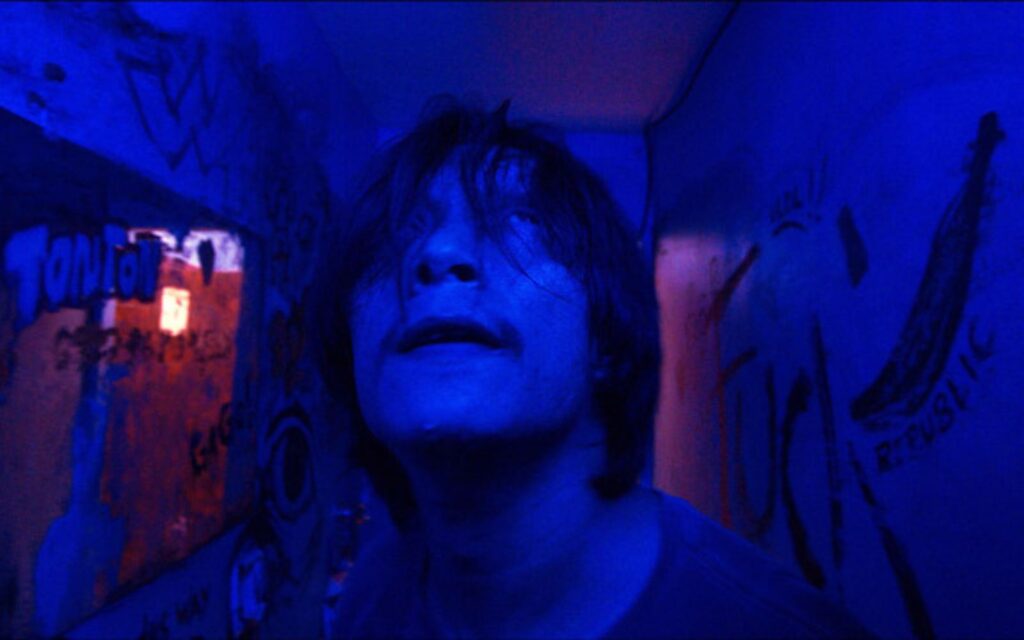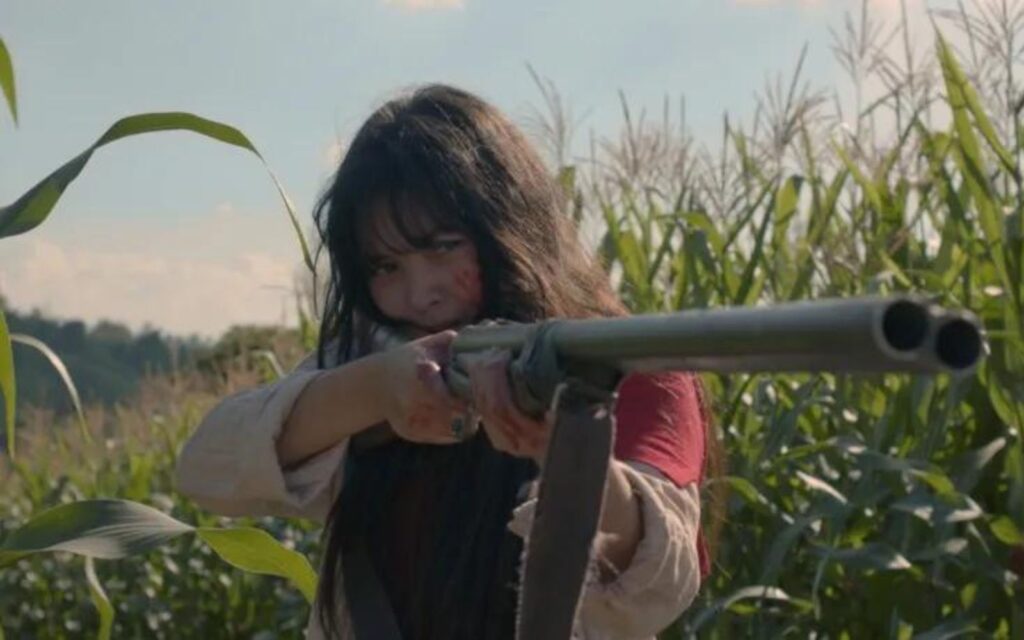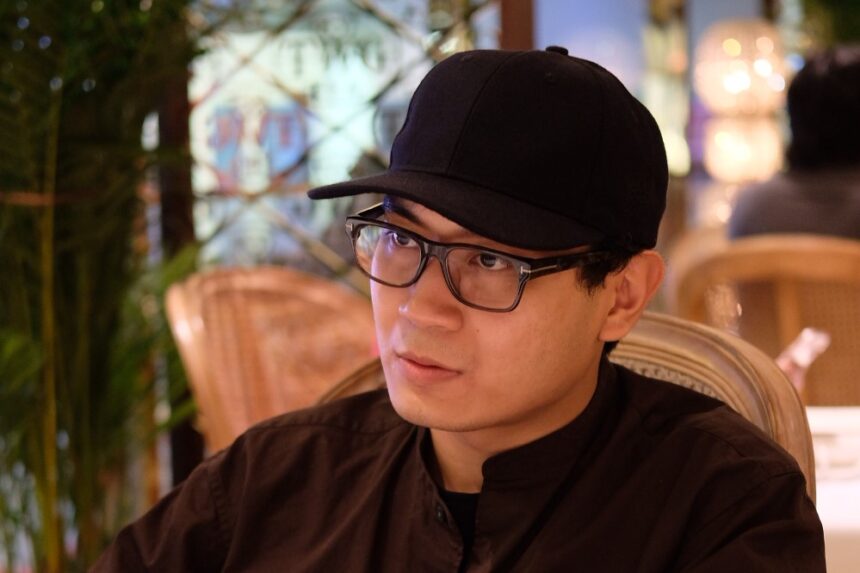The most rewarding part is seeing your imagination come to life and be shared with a wide audience. I aim for wide distribution and reach as many people as possible, internationally and locally.
Welcome to Hurwitz.TV’s Directors Interview Series, where we chat with some of the most influential filmmakers from all over the world.
In this series, you’ll have the opportunity to gain profound insights from the minds and creative journeys of these cinematic storytellers. Our goal is to explore the art of filmmaking, discover the inspirations and motivations that drive these directors, and delve into the captivating stories behind their remarkable works. From seasoned veterans to emerging talents, we talk about their artistic influences, memorable experiences, and the challenges they’ve faced along the way.
Today, I am joined by award-winning Filipino filmmaker Mikhail Red to talk about his journey from experimental storytelling, and international festival accolades, to mainstream success. Mentored by his father, acclaimed director, and Palm d’Or winner Raymond Red, Mikhail started making films at a young age, gaining recognition in local and global festivals. At 21, he directed “Rekorder,” his debut full-length feature, which premiered at the 2013 Tokyo International Film Festival. Since 2016, he has continuously released acclaimed films, including “Birdshot,” “Neomanila,” “Eerie,” “Dead Kids,” and “Deleter.”

Dennis: Thank you for joining us! To kick things off, can you share the story of you wanting and deciding to become a filmmaker? What drove you to pursue this career path?
Mikhail: I was exposed to cinema at an early age. My father Raymond Red was a filmmaker and TVC director, while my mother was an artist. In high school, I started to experiment with school projects using a mini DV camera to tell stories.
My first few short films I shot in mini DV with my friends for YouTube using ketchup for zombie blood and all DIY techniques that helped me learn the fundamentals of all departments, especially editing using Windows Movie Maker which helped me grasp film language.
I then enrolled in a summer filmmaking workshop under Marilou Diaz Abaya where I made my first serious short film at the time titled The Threshold. It was an experimental short film that got me into a film festival in Hannover, Germany at age 15. After that, I was obsessed – I made a couple of more short films including Kamera starring Lav Diaz, which won in Gawad CCP, and then went on to enter Cinemalaya with my short films Harang and Hazard, which are both up on Viddsee.com. At 21, with several short films under my belt and showcased in Cinemalaya, I submitted for the feature film category with Rekorder.
Dennis: What was the greatest piece of advice given by a mentor that shaped the artist that you are today?
Mikhail: I learned from my father that you don’t have to shout or be a jerk on set to make a good film. We’re both very meek introverts and just passionately geek out about the medium. Hopefully, our infectious passion resonates with the cast and crew.
Dennis: Which movies and filmmakers inspire you the most?
Mikhail: My favorite film is No Country for Old Men. I’m also a big Star Wars fan. Bong Joon Ho’s Memories of Murder is also one of my favorites, one of the films that inspired me to do Birdshot.

Dennis: Can you walk us through your creative process when developing a new film concept? How do you start from an idea and bring it to life on screen?
Mikhail: It is usually a collage of ideas or fragments of scenes that you collect in your head. Then one day it all just snaps together to form the film. Usually, the ideas are a combination of things that disturb me and inspire me. Things that disturb me are real, fears, current events, and social issues – they usually form the subtext of the movie I want to make. Meanwhile, the things that inspire me are the references, pegs or crafting techniques I want to try out as an artist and filmmaker. They create the form of the film, the vehicle, the lens, or the genre.
Dennis: What are the most challenging and rewarding aspects of making a movie?
Mikhail: The most challenging part of the filmmaking process is dealing with the realities of a third-world economy and struggling industry, where the budgets are not realistic with your ambitions, and yet you still have to think about the well-being of the cast and crew. It’s a balancing act of being fair with everyone on set and getting what you want while still creating something that can sustain itself or justify its existence. The most rewarding part is seeing your imagination come to life and be shared with a wide audience. I aim for wide distribution and reach as many people as possible, internationally and locally.

Dennis: What was your biggest “is this really happening” moment of your career?
Mikhail: I was in the World Magic Championship in France, playing for the Philippine team of Magic: The Gathering card game (my other hobby) when I got the news that our project Birdshot won the Doha Film Institute grant (worth around 3.5 million pesos at the time; my previous film Rekorder was just 1.3 million) which was a significant amount that would ultimately jumpstart the production of my dream sophomore film. I felt like I was at the top of the world doing two things I loved – I was 20 at the time.
The next “is this really happening” moment was when my 4th film Eerie was in BIFAN (Bucheon International Fantastic Film Festival) – Korea for a pitching forum and we won the Bifan Prize as well as secured funding from ABS CBN Star Cinema Studio at the same time! We got A-list casting with Bea Alonzo and Charo Santos. who was still CEO at the time. it was my first mainstream film, I was 25, and to top it all off, we broke records with the tremendous box office result of 200 million pesos while still getting screenings with our international film festival route. It felt like the best of both worlds where I broke into the mainstream while still bringing something to the table, things I’ve learned with my international circuit films.
Dennis: Lastly, name a filmmaker and/or an actor you would love to collaborate with in the future and why?
Mikhail: Locally, I was really looking forward to working with Daniel Padilla in Quantum Suicide, our sci-fi project that made festival pitching and grant rounds but we are still struggling to reach our goal budget because the concept is ambitious and needs to be shot in Japan. Back in 2019, we had also planned to get Liza Soberano for the Eerie prequel, Eerie Zero, which was set in 1955, where she was going to play a young Sor Alice (Mam Charo’s character in Eerie) and go against a demon in a cult-controlled small town. I was really looking forward to that before ABS CBN was shut down, and even our Magic Temple remake was affected. Internationally, it would be a dream to work with Dave Filoni, and maybe direct an episode for Star Wars or a movie (in my dreams).
But I am grateful that I now have Evolve Studios in collaboration with Viva. With our new joint venture, and as Chief Creative Officer, I am now able to develop and greenlight genre projects that are geared toward a wide regional audience. I could never imagine that I would be making a living doing what I love – making movies as a studio head alongside my brother who is also a creative producer in Evolve Studios.
In our slate, we have the folklore horror Nokturno starring Nadine Lustre, and a fencing film Swords Up coming up, as well as another sci-fi horror for 2024. We plan to release around 10 movies in the next five years working with different filmmakers as well. On the side, I have also finished my least cynical project of all – Friendly Fire starring Loisa Andalio and Coleen Garcia, an upbeat wholesome esports drama, reminiscent of 80s underdog sports movies but with competitive pro-gaming at the center, another bucket list project of mine since I’m really into gaming. Watch out for that as well.







